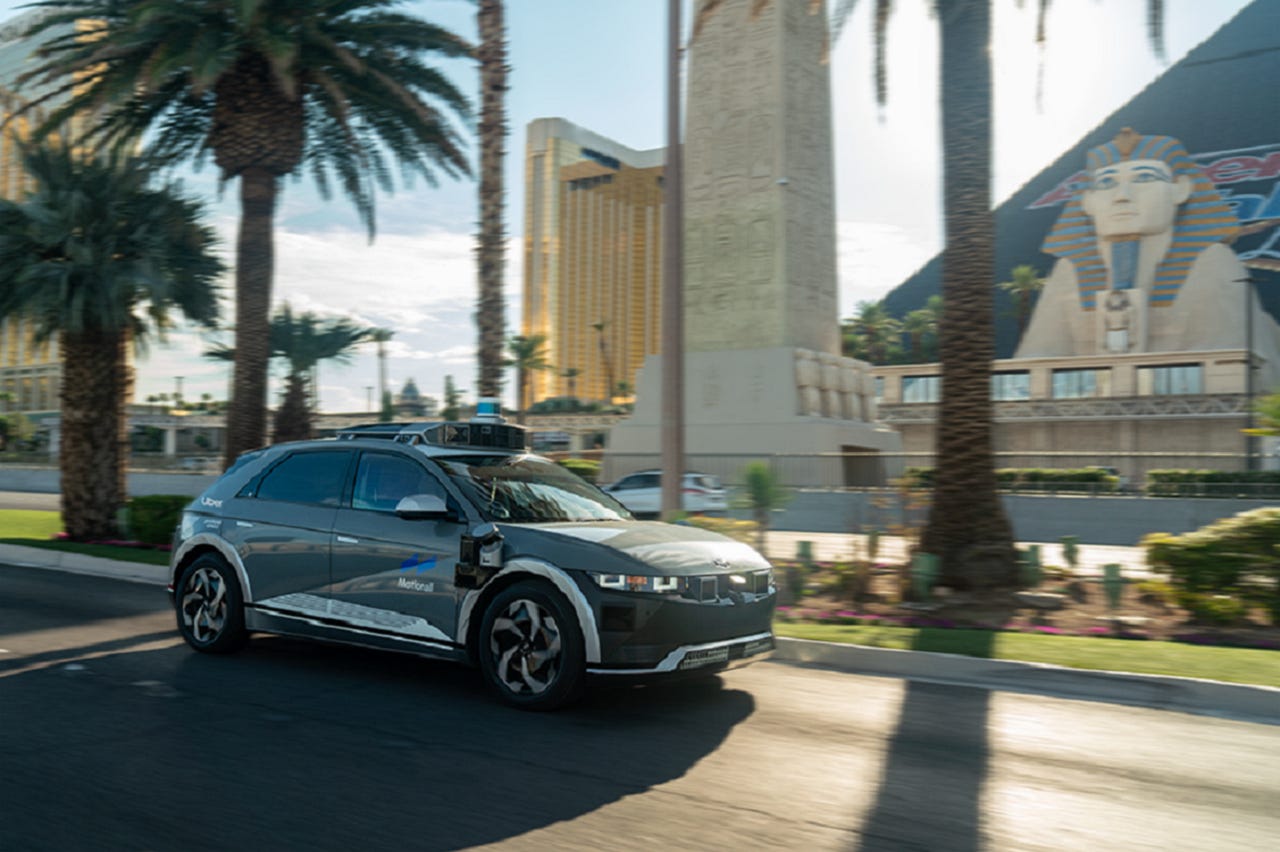Uber is launching robotaxi rides in Las Vegas


Uber on Wednesday announced it's launching its first-ever autonomous vehicle rides, beginning in Las Vegas. For now, the autonomous vehicles will still have a driver, but the plan is to launch a driverless service in 2023. If all goes according to plan, Uber will then expand its driverless-ride offering to Los Angeles.
Uber is offering the rides with its partner Motional – the autonomous vehicle (AV) company founded in March 2020 as a joint venture between Hyundai Motor Group and auto supplier Aptiv. Motional actually partnered with Lyft to begin offering rides in AVs (with a driver) in Las Vegas back in 2018. Like Uber, Lyft now plans to offer driverless rides in AVs starting next year.
Featured
For both the Uber and Lyft networks, Motional is using its all-electric Hyundai IONIQ 5-based robotaxis, which offer Level 4 autonomy. The levels of automation range from one to five.
Also: Yes, robots have taken over (So why don't we care?)
Uber customers that want to ride in an AV can select the UberX or Uber Comfort Electric option in the Uber app. If a robotaxi is free, Uber will match the rider to the vehicle. The rider will receive an offer to opt in before the autonomous trip is confirmed.
Uber turned to Motional earlier this year to deploy AVs for Uber Eats deliveries in the Los Angeles area. The companies have signed a 10-year commercial partnership to deploy Level 4 AVs for ride-hail and delivery services in major cities across the US.
The partnership with Motional and other autonomous-driving companies, such as Nuro, underscore the dramatic change in Uber's strategy over the years. Uber invested huge sums in its own AV technology, with the intent of eliminating its reliance on drivers. However, after a number of setbacks – within Uber and across the broader AV market – the company sold its AV business unit to a startup in late 2020.